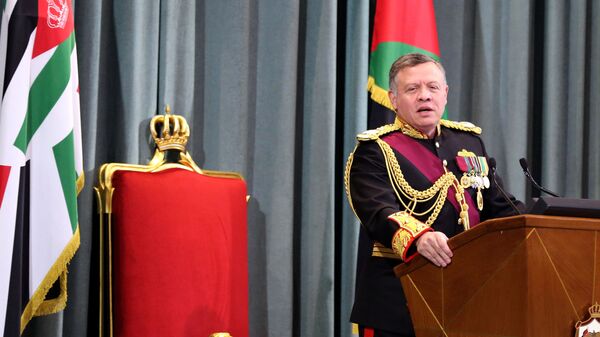Article 308 of the Jordanian penal code, which protects those convicted of rape, statutory rape and kidnapping from prosecution under those conditions, was shot down in a vote on penal code reform on Tuesday.
Jordanian Prime Minister Hani Mulqi came out in favor of the abolition on Tuesday. "The government is committed to eliminating Article 308 to reinforce the protection of the Jordanian family," he said in a speech before parliament.
Article 308 became part of the country's penal code in 1960 and it was reviewed on two levels: the "rape-escape" clause and another aspect of the code allowing men who have sex with girls aged 15 to 17 to escape prosecution if they then marry the girl.
The heated debate attracted protests and petitioners. Both parts of Amendment 308 were struck down by the lower house of Parliament; the upper house is expected to follow suit, and then the change should be ratified by King Abdullah II without incident.
According to the Jordanian Ministry of Justice, 159 rapists avoided punishment through use of this law between 2010 and 2013. That comes out to 53 a year, or around 3,000 rapists total to have escaped conviction in the law's 57-year history (assuming a consistent rate of conviction).
"The removal of this article is a victory for all victims of rape," said Eva Abu Halaweh, a human rights activist who founded the Mizan Law Group for Human Rights. The measure comes "after years of huge effort from civil society organizations." Halaweh also campaigns against honor killings as well as torture and abuse in the Jordanian justice system.
"Article 308 has been a blight on Jordan's human rights record for decades, and lawmakers should cancel it in its entirety," said Sarah Leah Whitson, Middle East director at Human Rights Watch. "The mere existence of article 308 puts pressure on women and girls to marry those who assault them, including teenage victims of rape."
Jordan is the latest Middle Eastern nation that has repealed such a clause: Egypt did so in 1999, Morocco in 2014 and Tunisia in July 2017. Lebanon and Bahrain are both considering repealing their own versions of the rule.
Algeria, Iraq, Kuwait, Libya, Palestine, the Philippines, Tajikistan and a handful of Latin American countries still have "rape-escape" laws on the books.




